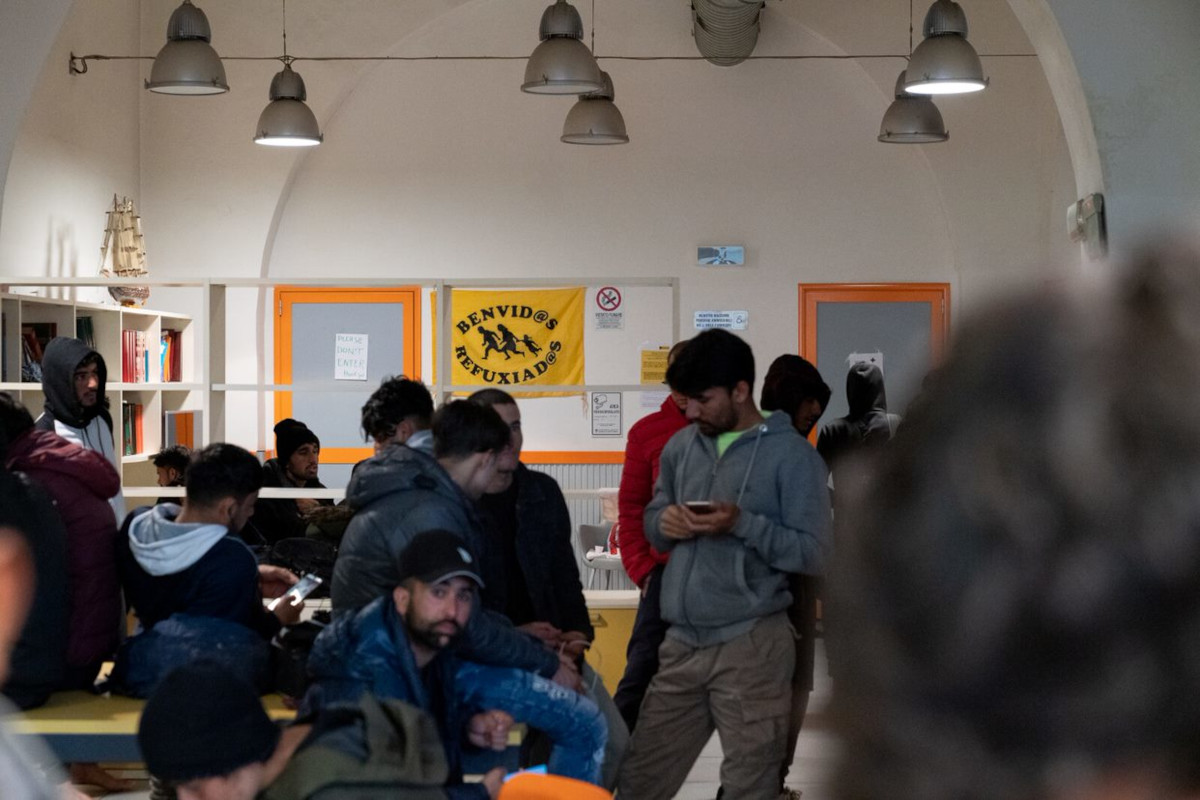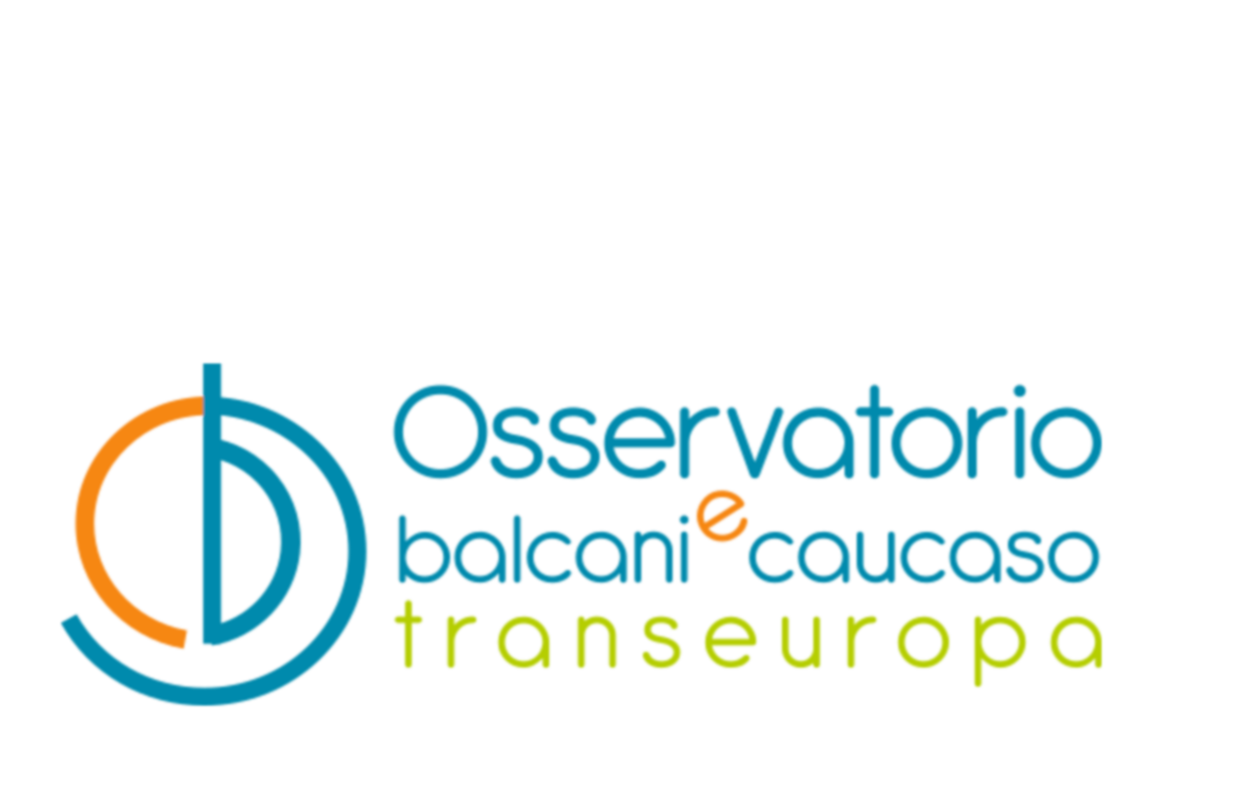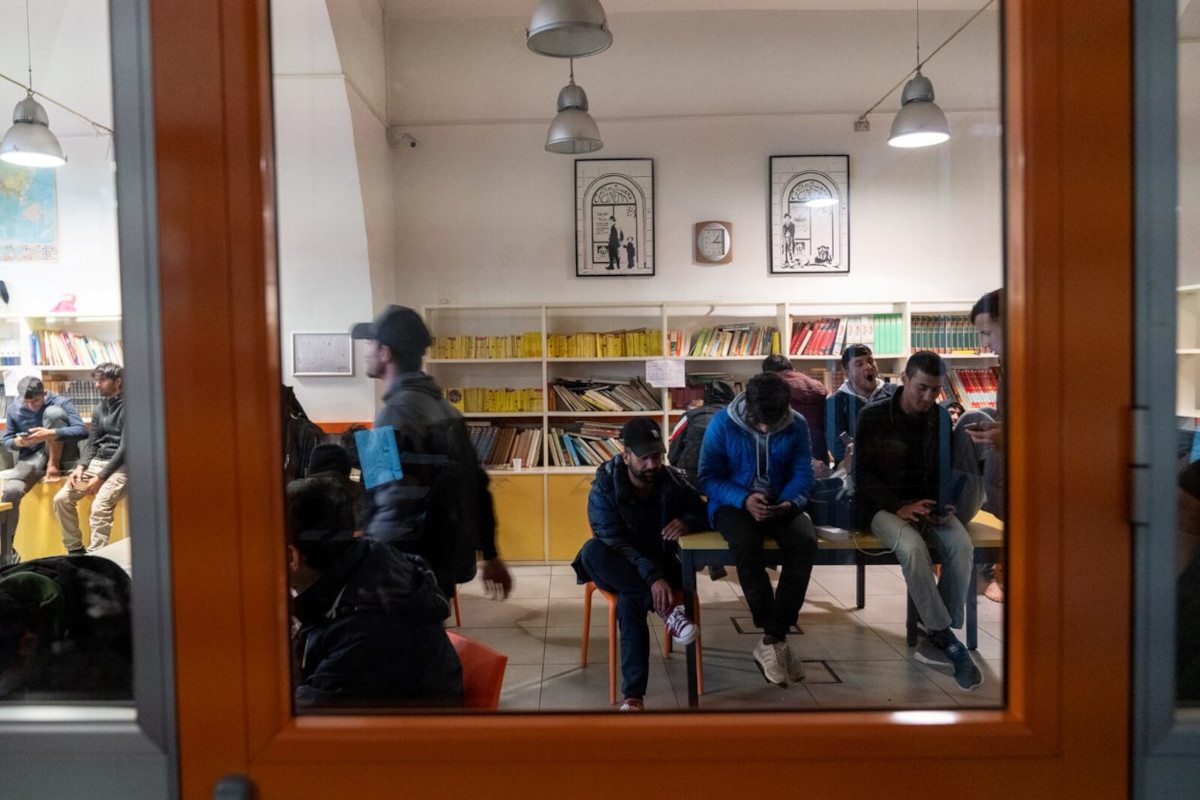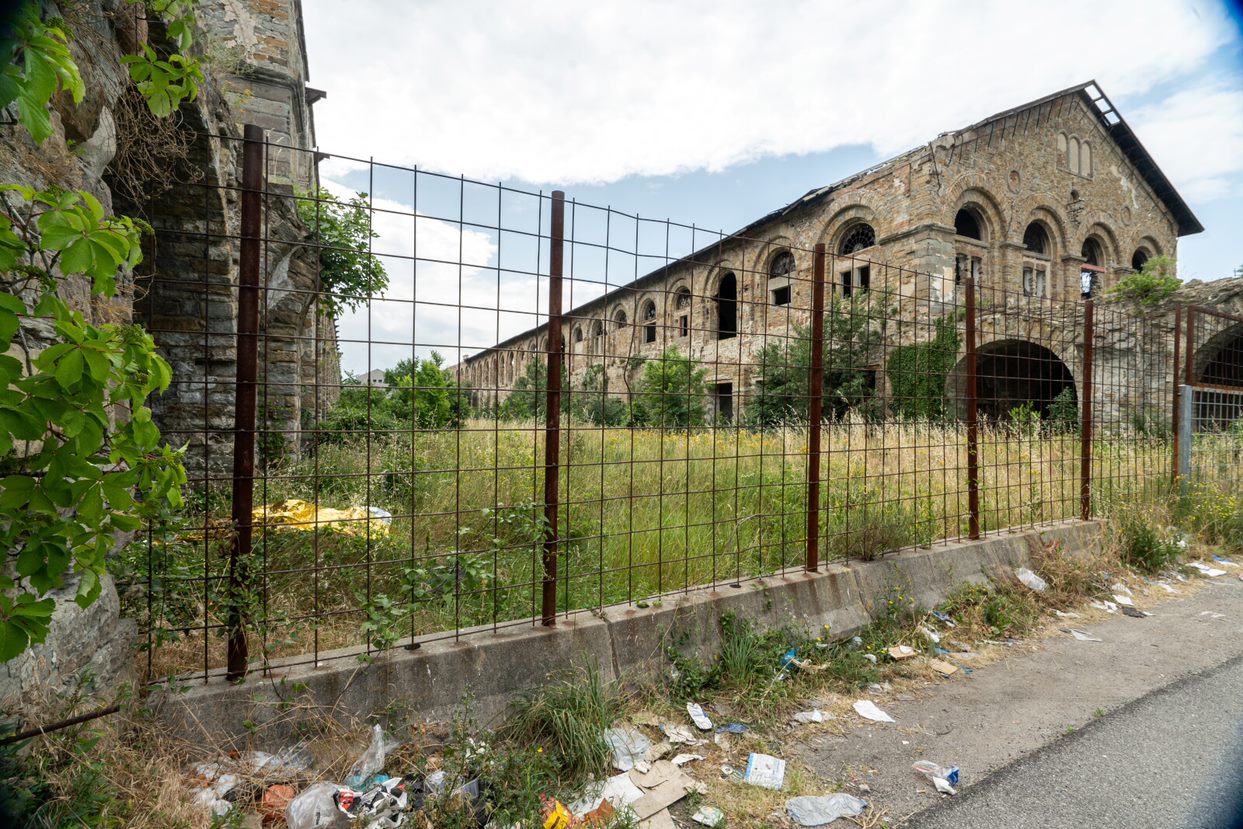
Day Centre in Trieste - Francesco Cibati ICS
In the 'Silos' area in Trieste, history repeats itself: in the places that once housed Istrian refugees, people arriving via the Balkan Route now live in degrading conditions. While waiting for a more dignified solution, the transnational solidarity network tries to make up for the ills produced by a short-sighted political vision of migration policies
"It is not about doing humanitarian work, but acting like human beings. It is not a job, nor should it be a business”, explains Stakoza, a long-term activist of “No Name Kitchen” in Trieste. The collective is made up of solidarity activists from different parts of Europe, and has been present at the main hubs of migration routes. They have been in Trieste since the end of 2023. As the name suggests, NNK was founded with the aim of providing hot meals to people in transit along the Balkan route who find themselves excluded from the reception system. In Trieste, it takes care of people on the move who find shelter inside the Silos, a ruined building next to the railway station, built between 1860 and 1865 to serve as a granary under the Austro-Hungarian Empire. Inside, hundreds of people are waiting for shelter, to which they are entitled by law, forced to sleep in tents in the freezing cold, exposed to the elements and plagued by scabies and rats.
Where the route ends and solidarity continues
A tight network of associations works to meet the basic needs of people on the move on a daily basis, offering hot meals, clothing, medical care and legal support, relying solely on their own resources and private donations. Together, they are part of the “Care on the move” project, part of the larger “Health on the move” project, which builds moments of socialisation with the people in transit inside the Silos, sharing their stories and experiences on a weekly basis.
"When they arrive in Trieste, the migrants feel they have finally arrived in Europe, after months and often years on the road, amidst violence and torture", says an operator of DONK, an organisation of healthcare workers who, on a voluntary basis, run the medical clinic at the Community Day Centre of San Martino al Campo, near the railway station and the Silos.
After years of shutdown due to the pandemic situation, since August 2022 people from the Balkan route, together with the homeless, can rest at the Day Centre during the day. Here they can take a shower and recharge their mobile phones, drink hot tea and receive legal support. "But at night they go back to sleep in the ruins of the Silos, where they are bitten by rats, contract scabies and pneumonia. When they are hospitalised and later discharged, they are advised to stay in a warm, sheltered place. But the conditions in the Silos do not allow them to heal; in fact, they worsen their situation. How can we not find a healthy place where they can recover?", continues Francesco from DONK.
A political responsibility
As pointed out by Gianfranco Schiavone, president of the Italian Solidarity Consortium (ICS) which has been working on the issue for years, most of the people in the Silos have applied for international protection and it is therefore up to the state to support them. Yet, the state fails to provide assistance for periods that often go beyond two months, before assigning them a place in the reception facilities or relocating them. Schiavone continues: “the Silos is a funnel since asylum seekers, except for those we manage to absorb in the reception system, are not timely relocated. So all the people who have applied for international protection pile up for weeks or even months before being relocated. Finding themselves sleeping in the street, they have the Silos as their only shelter, where they live in inhuman and degrading conditions”.
The slowdown in relocation has a political and ideological matrix, according to Schiavone and other reception operators, who explain how waiting times for relocation have been artificially lengthened – at times even up to three months – to create an emergency that, in fact, does not exist. If the number of arrivals has increased, and the number of places available for first reception has decreased, the Trieste transfer system has been slowed down as a result of a clear political will. People are left on the streets to induce them to leave and at the same time to keep the focus on these issues, which are particularly rewarding at the electoral level. As a result, the number of people at the Silos and in the area next to the railway station increases not because of arrivals, but by accumulation.
The “Solidarity not charity” action
The lack of political will to speed up transfers and provide decent accommodation for international protection applicants was denounced on March 2 with the solidarity action “Solidarity not charity”. On that day, the solidarity network organised a social event inside the Silos, showing the assembled press a video filming the interior of the space in Via Gioia, a building adjoining the Silos, equipped with toilets, showers, beds and electricity, where the hundreds of people sleeping in tents and freezing inside the Silos could find decent shelter. A warm, dry shelter that has been closed for 15 years. In 2022, it looked as if that building, with a 100-seat dormitory, would be opened in the renovated part. But the hostility of local and national institutions opposed its use to accommodate people in transit. A paradox in a city where there are hundreds of abandoned and unused spaces that, at the behest of the far-right city administration, remain closed to those arriving from the Balkan route.
The Silos, from Istrian refugees to the Balkan route: a story that repeats itself
While solidarity activists strive daily to provide support to migrants and asylum-seekers, supported also by Bishop Trevisi, who visited the Silos and repeatedly called on citizens and institutions to find a “shred of dignity”, history seems to repeat itself with fierce irony. A plaque placed by the Municipality of Trieste on the day of remembrance in 2004, semi-hidden in the front wall of the city bus station, recalls that “Here passed thousands of Italian brothers and sisters exiled from Istria, Fiume and Dalmatia who had been welcomed in Trieste since 1947 after the dramatic abandonment of their beloved homelands”. Another plaque recalls that, on December 7 1943, convoys of Jews destined for Auschwitz departed from the adjacent Trieste station.
In 2024, history repeats itself: the same building offers shelter – if it can be called that, given that rain, humidity and rats enter from all sides, the wooden roof is unsafe and the entire building is at risk of collapse – to humanity on the move, forced to live in a place even more inhospitable than the one that in the late 1940s offered shelter to the families of the Italian communities displaced from Istria and Dalmatia, together with former prisoners who survived the German concentration camps.
This is told by Annamaria Zennaro Marsi in her memoir “Life in Palazzo Silos”. The first chapter is titled “Silos – container of desperate souls” – a title that remains true. The testimonies of the time echo the words of today's migrants. Marisa Madieri, a Fiuman exile who lived with her family inside the Silos between 1947 and 1955, describes in her book “Green Water” the overcrowding, precarious conditions, lack of hygiene and above all the shame of her living conditions in the following words: “I was ashamed of my condition. I never spoke to anyone about the Silos and I fervently hoped to keep my housing secret for as long as possible".
Seventy years later, the same feeling of shame is expressed by those who find themselves forced to live in the Silos, waiting for the notification of transfer from the Prefecture, which is proceeding slowly. Bengali, Pakistani, Afghan people who, answering the questions of the presenter Pif, who has dedicated three episodes of his “Dear Martian” show to the situation in Trieste, say that they keep their families in the dark about the conditions in which they live, too ashamed to show the kind of reception offered by civilised Europe.
While waiting for a more dignified solution, the transnational solidarity network tries to make up for the ills produced by the political management of a migratory phenomenon that, as the Silos story shows, cannot and must not be treated as an emergency.
The European Commission's support for the production of this publication does not constitute an endorsement of the contents, which reflect the views only of the authors, and the Commission cannot be held responsible for any use which may be made of the information contained therein. The project's page Trapoco











